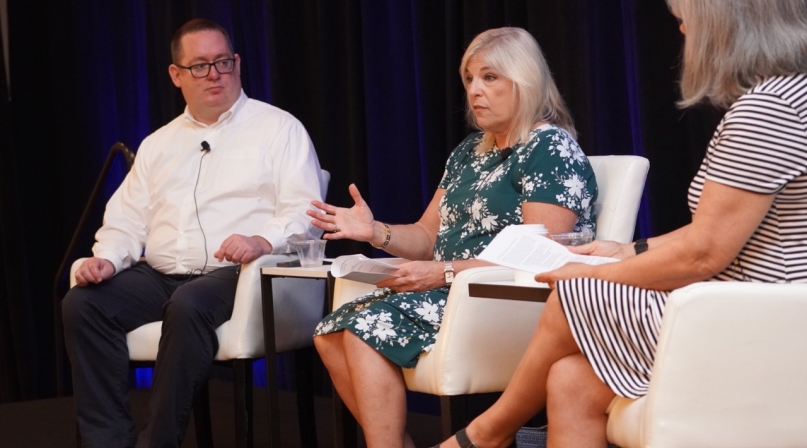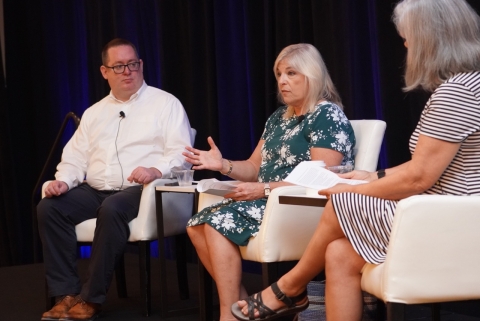Investing in early childhood key to economic mobility
Author
Upcoming Events
Related News

Key Takeaways
County leaders held a panel discussion July 10 at NACo’s Annual Conference on innovations and strategies for expanding services for children as part of Counties for Kids, a public awareness campaign that focuses on young children prenatal to three years old.
In Stearns County, Minn., the county reached an additional 1,000 infants and their parents during the pandemic through Women, Infants and Children (WIC) because of an increased number of telehealth visits.
The county began using community connectors who are paired with public health nurses to work with moms and teen parents throughout their pregnancy and post-delivery, Stearns County Commissioner Tarryl Clark told county officials.
In Pierce County, Wash., Council Chair Derek Young said about one-fifth of children in the county are in households that are below the poverty line.
Pierce County launched the Family Connects International to provide free nurse home visits to every household in targeted ZIP codes with the goal of expanding the visits throughout the entire county.
“The reason we’re doing that is it connects families to services that are already out there,” he said.
He referenced the county’s 211 program, which connects residents to services over the phone, and a diaper bank program that provides free diapers to families.
“Not only did that provide a real, essential need for families, but also it gives us another shot to talk about what their other needs are and connect them to other services,” he said.
Mecklenburg County, N.C. Manager Dena Diorio said childhood services started in the county with the goal of improving economic mobility.
The county created a task force to improve mobility and found early childhood education was key to improving economic mobility.
She explained how the county is working to implement universal pre-kindergarten and is the only county throughout the state implementing a universal pre-kindergarten program.
Mecklenburg County commissioners also invested $21 million to ensure that every child who was on a wait-list for childcare slots was able to access childcare and help working families.
“It’s a two-generational program that allows families to put their children in a place where they can be safe and allow them to go out and make a living,” Diorio said.
Additionally, Mecklenburg County created an Early Childhood Executive Committee to help guide efforts in the early childhood sphere. The county partnered with the Charlotte Executive Leadership Council to complete an early childhood education study that looked at how to advance the early childhood program and pre-kindergarten initiative.
“I think that was one of the biggest things that helped us enhance this,” she said.
The panelists also discussed making investments to expand services for children with American Rescue Act funding. Diorio advised counties to go slow with the dollars.
“You want to make sure you leverage every pot of money that comes your way,” she said. “Right now, we’re really more in the planning stages in creating a framework and child and family stability is one of the pillars in our framework that we will put dollars in.”
Young said he encourages counties to partner with cities. Pierce County is looking at capacity-building and obtaining resources to expand more services countywide.
“I think with small investments at the local level, smoothing out those cliffs, marginal investments can have really big and great policy outcomes,” he said.

Attachments
Related News

Counties and Railroads: Shared Priorities for the Next Surface Transportation Bill
County leaders from across the country have a vital opportunity to ensure their infrastructure priorities are front and center.

House reintroduces bipartisan legislation to level playing field for rural communities
House reintroduced the Rural Partnership and Prosperity Act, bipartisan legislation intended to advance economic development in rural counties and overcome barriers to obtaining federal funding and resources.
